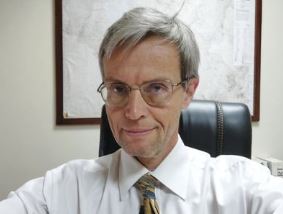The Deputy Head of the European Union (EU) Delegation, Lothar Jaschke, on Tuesday reaffirmed that the EU, which co-chairs the Women, Peace, and Security (WPS) Working Group, is committed to the full implementation of the group’s agenda.
He made the remarks at the opening of the Annual Gender Equality Forum, which commenced on Tuesday in Juba and will run until Thursday.
“Women, Peace and Security is a subject close to our heart, and we thank UN Women for accepting us as co-chair of the Women, Peace, and Security (WPS) Working Group. The Working Group focuses on promoting women’s participation and protection in peace and security processes, particularly in the context of the ongoing transition and conflict,” Jaschke said. “Our Group advocates for the full implementation of the WPS agenda. The agenda is crucial for achieving sustainable peace and security, particularly as the country navigates its extended transition. The WPS agenda emphasizes women’s full, equal, and meaningful participation in peacebuilding, security, and political processes.”
According to the envoy, a key aspect of this agenda is the implementation of the National Action Plan on UNSCR 1325, which aims to incorporate the WPS framework into national policies and practices.
He added that contributing to the promotion of the WPS agenda is a priority for the EU, which appointed an Ambassador for Gender and Diversity towards the further integration of WPS commitments into EU action.
“In particular to apply gender-responsive approaches in all efforts aimed at the prevention and resolution of conflicts, peace negotiations, peace-building, peacekeeping, humanitarian response as well as the relief, recovery and reconstruction of conflict-affected states, including transitional justice processes, and to ensure full, equal and meaningful participation of women in these processes,” Jaschke stated.
He said the EU is a strong advocate for gender equality and women’s rights in South Sudan and that over the years, the Delegation has been working together with the international and South Sudanese civil society, the UN agencies to tackle the root causes of both sexual and gender-based violence, and inequalities.
“More concretely, the Delegation has been supporting seven projects with seven million euros. The projects were particularly addressing different aspects of women’s empowerment at the grassroots level, also providing survivors with psychosocial support and legal support, promoting women’s economic and social empowerment. These projects ended last year, but not our engagement,” he said. “My colleague is today (Tuesday) at the launch of one of the successor projects on countering GBV at the local and subnational levels, including in the context of (forced) displacement. Let me mention that we work closely with the German Federal Ministry for Economic Cooperation and Development (BMZ) on this project.”
He highlighted that all EU projects have a strong gender focus since the global aim is to have 85% of all EU interventions by 2025 contributing to gender equality.
“We encourage the Government to roll out the National Action Plan to effectively implement the WPS agenda and provide an indicative, strategic intervention pathway,” Jaschke said. “This also calls for the enactment of the Anti-Gender Based Violence Bill by parliament and its full implementation, to make sure that women are protected against violence, especially as the country is currently undergoing open conflict.”
He stressed that the EU is deeply concerned about the disproportionate effect that armed conflicts continue to have on women and girls worldwide, as well as the prevalence of sexual and gender-based violence, including conflict-related sexual violence, offline and online.
“We are enhancing efforts to prevent and counter sexual and gender-based violence in order to ensure full accountability and to combat impunity, and encourage all stakeholders to join this collective endeavour,” the envoy stated. “You do it today at this forum. As it aims to enhance monitoring of adherence to relevant laws, regional and international commitments on gender, women’s peace and security, and to examine the results of the 2024 Annual Gender Equality Forum Resolution, we encourage the inclusion of all aspects of WPS in current legislation and advocate for its enactment.”
“This includes the domestication of conventions that South Sudan has signed, such as the Maputo Protocol, CEDAW, and other relevant laws for promoting the WPS agenda,” he added.




